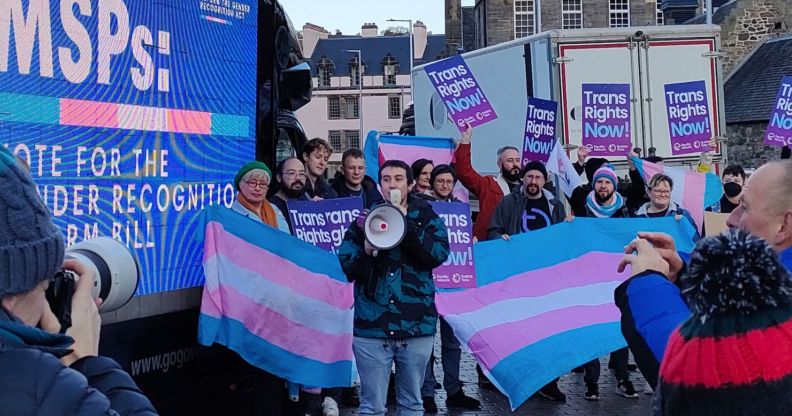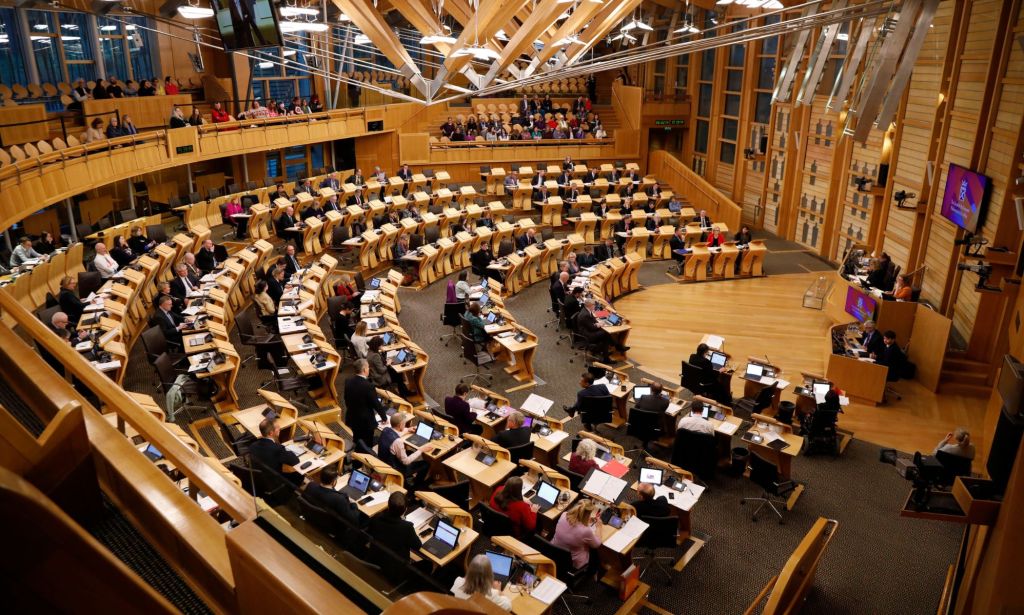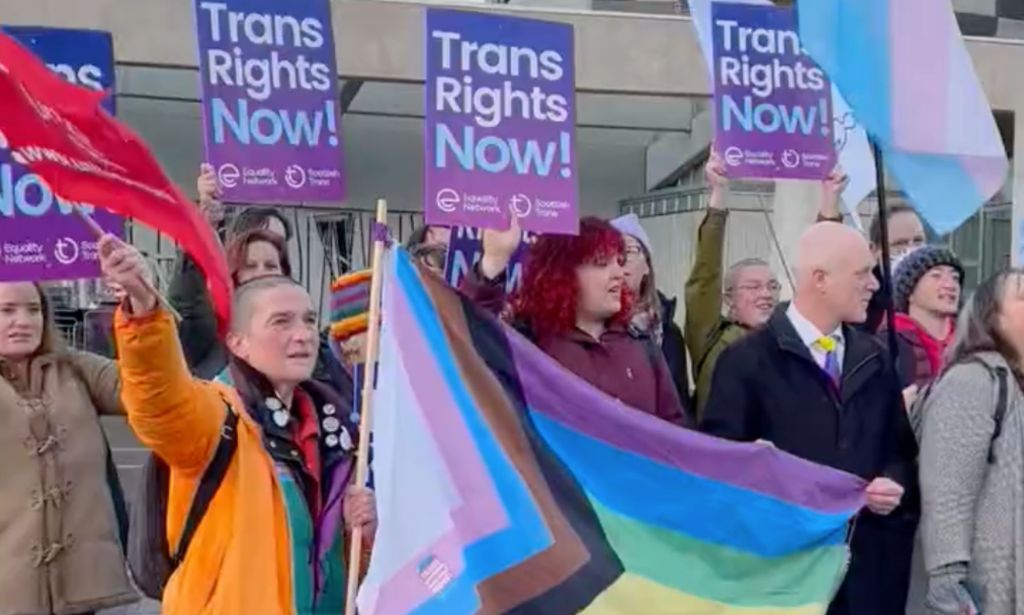Scottish Tories accused of ‘shamelessly filibustering’ gender law reforms as votes stretch into night

Advocates called on Holyrood to pass the Gender Recognition Reform (Scotland) bill, which would streamline the process by which trans people can live as their authentic selves. (Scottish Trans/Equality Network)
Scottish Tories have been accused of trying to ‘blatantly and shamelessly filibuster’ parliamentary proceedings on gender reform legislation for trans people.
MSPs sat through a marathon session of parliament on Tuesday (20 December) after members put forward a series of points of order and amendments to their agenda ahead of votes on amendments to the Gender Recognition Reform (Scotland) bill.
The bill will streamline the process through which trans people in Scotland can change their legal documents in order to live as their authentic selves, demedicalising it and opening it up to those aged between 16 and 18.
Despite cross-parliamentary support for the long-needed reform, the session on Tuesday ended just after midnight with only half of the tabled amendments being discussed after chaotic scenes and “delaying tactics” from Scottish Conservatives.

The Scottish Tories appeared to try to make the proceedings last as long as possible, tabling four amendments to the agenda. They also forced a vote on the timetable for considering the amendments to the legislation and raised further motions as well as points of order before the debate on the over 150 amendments to the Gender Recognition Reform (Scotland) bill began.
Glasgow’s Green MSP Patrick Harris wrote on Twitter that there was “more than an hour of delaying tactics” before members were “finally into the debate on amendments”.
“Those who have tried to delay this bill at every step of the way have behaved shamelessly, and continue to do so,” Harris said.
There were also calls to delay proceedings into the new year, discussions on if certain amendments would open the bill to legal challenges and questions on the impact of the bill on the Equality Act.
At one point, protestors disrupted the proceedings by shouting “shame on all of you” after an amendment tabled by Scottish Tories’ Russel Findlay, seeking to prevent convicted sex offenders from being able to apply for a gender recognition certificate (GRC), was voted down.
As a result of the disturbance, proceedings were delayed.

Scottish National Party MSP Emma Roddick slammed the Tories for forcing the debate to stretch into the “wee hours of the next day”.
“Let’s be clear: the Government did not timetable a debate to last into the wee hours of the next day,” Roddick wrote on Twitter. “It timetabled a debate within a normal timescale and the Scottish Tories blatantly and shamelessly filibustered all afternoon and evening then complained about the time.”
Roddick described the proceedings as “not normal”, and said she couldn’t “recall any similar event happening in the Scottish Parliament before”.
“They have some cheek claiming anyone else is disrespecting our national parliament or democracy,” she added.
Scottish Green MSP Gillian Mackay tweeted that she was “frustrated and angry at the conduct of colleagues” who tried to argue there wasn’t “enough time for scrutiny while trying to talk to the debate out”.
Despite the arduous parliamentary proceedings on Tuesday, Scotland is poised to pass the much-needed reforms on Wednesday (21 December) given widespread support among the SNP, Scottish Greens, Scottish Labour and the Lib Dems.
The Gender Recognition Reform (Scotland) bill would remove the need for a medical diagnosis of gender dysphoria – a process that can take years – to receive a GRC, the legal recognition of their gender.
The bill would also lower the minimum age for applicants to 16 and reduce the time required for an applicant to live in their acquired gender from two years to three months – six for people aged 16 and 17 – though with an additional three-month reflection period.

